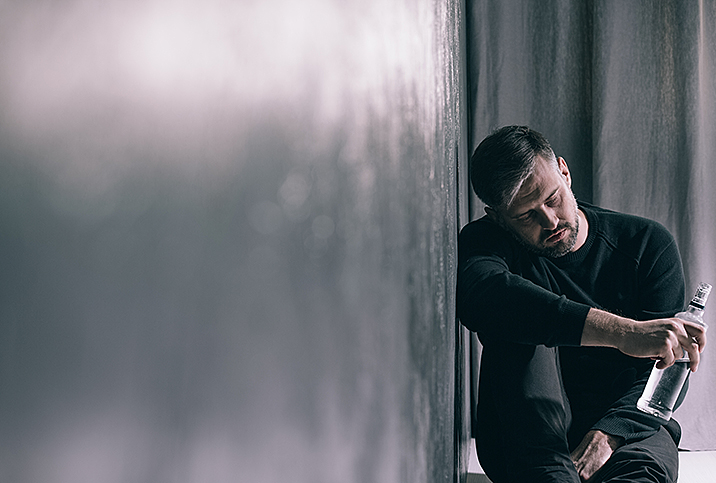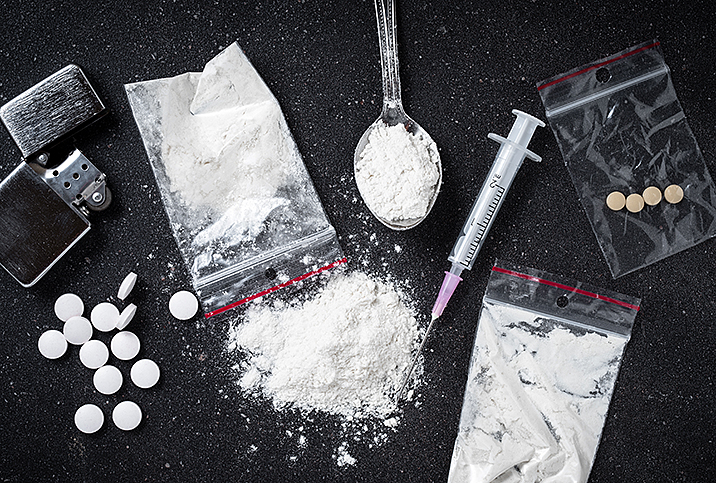What to Do When You’re Dating Someone With an Addiction

How do you recognize when the life of someone you love is threatened by addiction, and how do you react? For many people, the trauma of this experience can be crippling and can lead to a wide range of problems.
You may not be able to do anything immediate to help your partner, but it’s just as important to do what you can to help yourself in this situation. You cannot be strong for them if you’re not strong for yourself first.
How addiction becomes an issue
Every relationship is different, so what works for one couple or person may not work for you, and vice versa. However, some universal lessons can be learned from others going through this experience. Here’s how addiction became an issue with one couple:
Moira is 27 years old, and one month ago she left the home she shared with her fiancé, David. The two have been together for almost three years and have been engaged for a little more than a year. Throughout their relationship, they mixed casual sex, which sometimes included other partners, with infrequent, recreational drug use.
With no work immediately available and the entire country experiencing an economic crisis, David began selling crystal methamphetamine to pay the bills and provide for the household. Moira said she watched his chronic use of the drug gradually become more obvious. After she confronted him several times, David finally admitted to using crystal meth frequently. He also confessed to admitting it only because he knew he could no longer hide his behavior.
As David began using the substance more frequently, Moira watched his personality shift. He became more secretive and lied about his activities.
Knowing that the drug carried a sexual connotation for David, Moira inquired as to whether he was having sex with other people. He denied doing so despite reports from friends and evidence to the contrary. When a sex tape featuring David surfaced, one apparently filmed while he was under the influence, Moira couldn’t ignore the facts.
“He’s just become this narcissistic, terrible human,” Moira said. “At this point, I’ve watched him change completely.”
David eventually disappeared for three days straight. Unsure what to expect upon his return and afraid for her health and well-being, Moira packed her bags as she waited for him to come back. When he did, she expressed her concerns and left to stay in a hotel.
She has bounced from hotel rooms to accommodations with friends for the past month. She has been unable to retrieve her personal belongings from their house or communicate effectively with David due to his erratic and hostile behavior.
This is not an isolated story. Other factors and other actors may be part of the stories, but the final scenes all have a familiar ending.
When we know someone well, especially when we share a domestic situation with them, it can be easy to take what we don’t know for granted. Drug use can have a chaotic and unpredictable impact on human behavior, transforming a person we love into someone unrecognizable. Well-adjusted people can fall apart, and working relationships can become unhinged, when addiction becomes a factor.
A rock and a hard place
Watching someone you love use or abuse substances is heartbreaking, not just because of your own feelings of loss, but also because of the obvious pain experienced by your partner. Constant substance use takes a serious toll on the mind, creating communication barriers that will remain as long as the person continues that cycle.
Even after physical space is made, mental space can become a precious commodity, easily overtaken by the traumatic circumstances. It can be extremely difficult to keep that space for yourself when your primary instinct is to help your loved one.
Even a month later, without having had a single reasonable conversation with David, Moira still struggles with the predicament of her relationship with him.
“It’s like Stockholm syndrome,” she said. “I’m still waiting and just hoping he’ll stop using. I want to be there. I want to help him. You don’t want to see the person you love turn into someone they themselves hate.”
However, as much as you may want to reach out and help a partner in need, addiction can foster hostility that makes interaction unsafe. Moira is reminded of this when David makes vague and threatening statements. She describes him as delusional and ranting at times, even paranoid to the point of implying criminal intent.
“It’s actually dangerous,” she said. “I find myself looking over my shoulder because of some of the things he’s said.”
This type of behavior is more typical of meth use than some other substances. A person who is high on meth can present similarly to someone who is experiencing an acute psychotic episode, whereas drugs such as heroin, marijuana, alcohol and others typically have different effects.
People who use drugs are not always obvious with their thoughts and intentions. It’s important to recognize that some people who use substances can present themselves as entirely functional—healthy, even—until placed in just the right, or wrong, scenario. As much as you may want to be there for someone dealing with an addiction, you may need to “be there” remotely for your own good.
Moira describes David as predictable in his behavior, yet she also says she never would have expected him to become the person she sees today. But addiction doesn’t wipe all of that history away. It’s easy to recommend distance, but how does a partner separate from a loved one without experiencing emotional backlash?
Many support systems are available if you find yourself in such a situation. Numerous therapy and counseling services specifically deal with addiction and coping with a loved one who has a substance abuse problem. Many organizations, such as Al-Anon and Narcotics Anonymous, are specifically set up nationwide to give people the tools and resources to get through such difficult times.
As much as you might want to help your partner, you will also likely need some help yourself. Addiction tends to affect many more people than just the person who is struggling with it.
Moving on
You can only do so much to force a healing hand upon a person who is in active addiction. The legal ramifications can be quite severe if someone is arrested for possession or distribution, which may make a romantic partner reluctant to turn to the law for help. Some cities and states may have the option to involuntarily commit a person, in the hopes of getting vital treatment for their mental health, but the service organizations that can offer this are often spread thin and held back by various bureaucratic barriers.
This frequently means, for the partner of someone abusing drugs or alcohol, the options for comfortably moving on might be few to none. In Moira’s case, it’s simply a waiting game.
“I haven’t stopped loving him just because he’s an addict and doing things he’s going to regret later,” she said. “I truly believe addiction is a disease. All I can do is keep telling him I love him and that I hope he gets the help he needs. Meanwhile, I’m just waiting and hoping with my life on hold. Luckily, I have amazing friends. I’d be completely screwed if it weren’t for them.”
If you or someone you love is struggling with substance abuse, please seek help. The danger you might sense from a struggling partner can become all too real in a flash. The longer you deny the problem or pretend it’s going to get better without professional intervention, the harder it will be for your partner to face it, as well. There is hope for recovery, especially if you can hold your partner accountable while protecting yourself in the process.
















